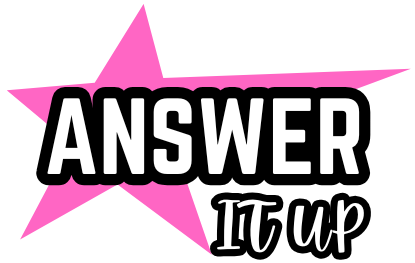Have you ever stubbed your toe and found yourself blurting out something your gran wouldn’t be too pleased to hear? Or maybe you’ve sat in traffic, teeth clenched, trying not to explode while a particularly oblivious driver cuts you off. Swearing can feel like a pressure valve—a release of frustration, surprise, or even excitement. But what if you could get that same release without offending your boss, alienating your audience, or setting a poor example for the kids?
As someone who once had a swear jar that could have funded a modest holiday, I know the struggle. But over time, I discovered that you don’t need to be foul-mouthed to be fiery. This article will explore the best alternatives to swearing that let you stay expressive while staying civil.
Why Do We Swear in the First Place?
Swearing isn’t just a bad habit. Linguists and psychologists agree that it serves real functions in our daily lives. According to Dr Emma Byrne, author of Swearing is Good for You, cursing can:
- Reduce pain (yes, really)
- Strengthen social bonds
- Improve emotional regulation
A study by Keele University found that participants who swore during a cold pressor test (where you immerse your hand in icy water) could withstand the pain longer than those who didn’t. It’s a built-in coping mechanism.
But context is everything. While your close mates might laugh off a well-timed curse, in professional, family, or public settings, it could backfire.
When Swearing Becomes a Problem
Inappropriate language can:
- Damage professional credibility
- Escalate conflicts
- Set a bad example for children
- Detract from your message
As a freelance copywriter, I learned the hard way that colourful language in a client pitch doesn’t exactly scream “trustworthy partner.” Being articulate means knowing how to say what you feel—without defaulting to four-letter words.
Clever Alternatives to Swearing That Still Hit Hard
Let’s be honest—part of what makes swearing so satisfying is its punch. So any replacement has to deliver on impact. Here are some substitutes that walk the line between expressive and acceptable.
1. Inventive Exclamations
- “Crikey!” (Australian classic)
- “Blimey!” (British and brilliant)
- “Holy moly!”
- “Mother of pearl!”
- “Son of a biscuit!”
They may sound silly, but they’re surprisingly satisfying when shouted.
2. Creative Insults (That Aren’t Really Insults)
- “You absolute spoon.”
- “What a muppet!”
- “He’s as sharp as a bowling ball.”
- “She’s three sandwiches short of a picnic.”
These add humour, not hostility—ideal for diffusing tension.
3. Foreign Language Euphemisms
Sometimes swearing in another language feels like cheating the system. While you still should be careful (many people will understand), it’s often softer:
- “Merde!” (French)
- “Scheisse!” (German)
- “Caspita!” (Italian)
4. Sound-Alikes and Swaps
- “Fudge!”
- “Sugar!”
- “Shut the front door!”
- “What the fork?” (Thanks, The Good Place)
Swapping phonetic cousins can still give you that emotional release.
5. Emotionally Honest Statements
Instead of a meaningless expletive, try saying what you actually feel:
- “I’m really frustrated right now.”
- “This is overwhelming.”
- “I need a second.”
It’s honest, mature, and often more effective than shouting obscenities.
How to Replace Swearing in Your Daily Life
1. Identify Your Triggers
Keep a mental log for a day: when are you most likely to swear? Traffic? Tech issues? Difficult coworkers? Once you know your triggers, you can prep better responses.
2. Build a Vocabulary Bank
Have a go-to list of clean alternatives. Say them out loud. It may feel awkward at first, but like any habit, it gets easier.
3. Pause Before You React
Swearing is often impulsive. Practice pausing. Breathe. Count to three. Sip tea. Anything to create space between the feeling and the outburst.
4. Use Humour as a Shield
Humour defuses tension faster than rage. If you can laugh instead of lash out, you’re already winning.
The Benefits of Swear-Free Expression
Making the switch isn’t just about manners. It genuinely improves communication. Here’s what I noticed after cutting back:
- People listened more. Without swear words, my messages carried more weight.
- Fewer regrets. I didn’t have to apologise for what I said in the heat of the moment.
- Better creativity. Finding new ways to express frustration challenged me to be more articulate.
What Experts Say
Dr Timothy Jay, a psychologist and expert in language, has spent decades studying swearing. He notes that while swearing can be cathartic, it loses its power if overused.
“If you swear all the time, it stops being emotional language. It just becomes another filler.”
In short: the more you swear, the less impact it has.
Meanwhile, mindfulness coach Sharon Salzberg advocates for intentional speech:
“Words are powerful. If we can use them wisely, we shape not just how others see us, but how we see ourselves.”
FAQ:
Is it bad to swear sometimes?
Not necessarily. In moderation and in appropriate contexts, it can be harmless or even helpful. The key is control and audience awareness.
Can you still be assertive without swearing?
Absolutely. Assertiveness is about clarity and confidence, not volume or vulgarity.
Are there cultural differences in swearing?
Yes. Swearing norms vary widely across cultures. What’s shocking in one place might be everyday slang in another.
What if I accidentally swear around kids or at work?
Apologise, correct yourself, and move on. Consistency over time matters more than slip-ups.
Final Thoughts: Swear Less, Say More
Replacing swearing isn’t about becoming bland or boring. It’s about finding richer, more nuanced ways to say what you mean. It challenges you to get creative, stay in control, and communicate more powerfully.
So next time you drop your phone or miss your train, skip the f-bomb. Try a “flipping heck!” or a “botheration!” instead. You might just smile—and that’s half the battle.
Your turn — What’s the funniest or most creative swear alternative you’ve used? Drop it in the comments below. Let’s build a swear-free phrasebook together!
Make sure to read our rearmost post about gleeful felicitations responses.









